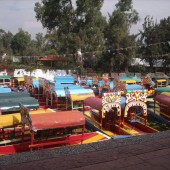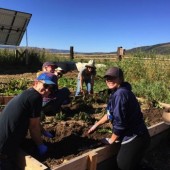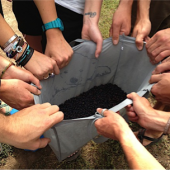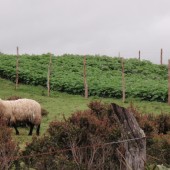
The educational experience described in this article was developed in the course “Social and Cultural Contexts of Teaching” for the Sociology of Education bachelor’s degree at the National Pedagogical University, Mexico. In this course, students are expected to develop favorable attitudes toward the environment. The student’s defined environmental problems made a diagnosis and elaborated a case study, to discuss concrete solutions in their community. The educational experience included several moments: framing, joint planning of individual and group activities, and development of the case study. The balance of the results of the course was favorable; the group learned to work cooperatively, mutual trust prevailed within the teams, group agreements were respected, the group goal was clearly defined, and a case study was delineated and developed.
Continue ReadingAbstract: Using a mixed methodology, we followed the preparation of fifteen teacher candidates through a summer content immersion and schoolyard ecology field experience as part of their alternative route to teacher certification program. The primary purpose of our summer project was to support and learn from the funds of knowledge of the teacher candidates and migrant youth. Next we sought to determine if a learner-centered teaching, modeled in a content immersion that explored the inner life of cells, could be applied heuristically to co-plan and teach schoolyard ecology. The results suggest that a learner-centered teaching translates well between content and field immersions and can positively support the cultural and community wealth of both candidates and migrant youth while affirming and deepening our appreciation of the local natural world.
Continue Reading
Abstract: Offers a brief introduction to the Journal of Sustainability Education issue focused on hope and agency, highlighting hope and agency as essential aspects of sustainability education in the Anthropocene.
Continue Reading
Abstract: The authors engage in a written dialog about their experiences with and understanding of hope and agency in the context of higher education happening in the midst of many converging crises of sustainability. The authors discuss their personal and professional views about teaching sustainability and about leading and collaborating in sustainability-oriented efforts. They consider sustainability and sustainability education efforts as both internal processes that take place within the person and external processes oriented toward others and the world. They explore questions of leadership and authority in relation to hope and agency and discuss the importance of making and communicating honest appraisals of the current situation of humans and the biosphere as a basis for fostering clear-eyed hope and agency in themselves and students.
Continue Reading
In this interesting comparison of sustainability in very different geographic and cultural settings—Long Island, New York versus the Chiloé archipelago, Chile—Vercoe and Brinkmann suggest that the societal framework for sustainability requires very different educational efforts. Their in-depth analysis of how these societal frameworks are almost diametrically opposed opens us to understanding how important geography is to the way we formulate our educational goals and systems.
Continue Reading